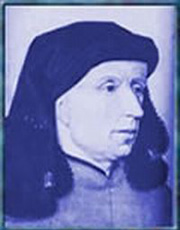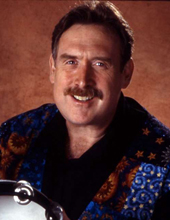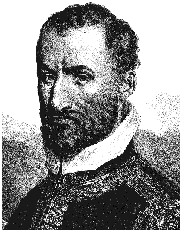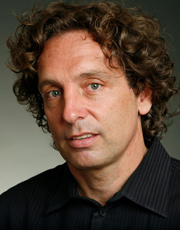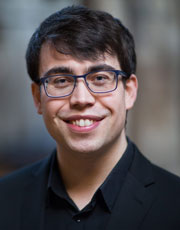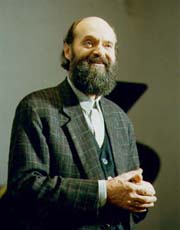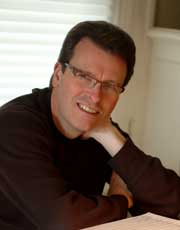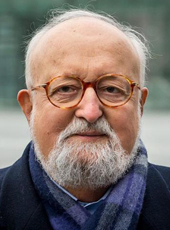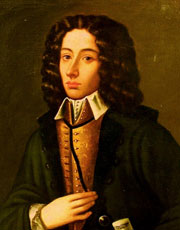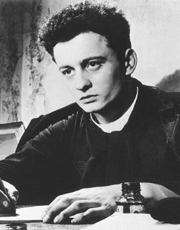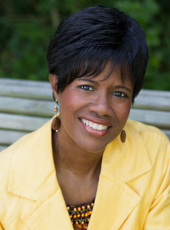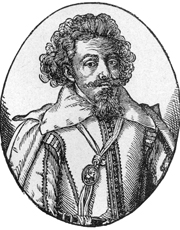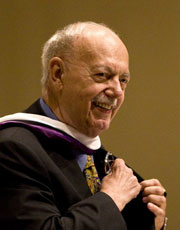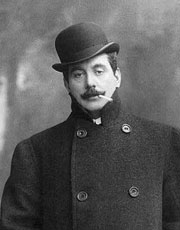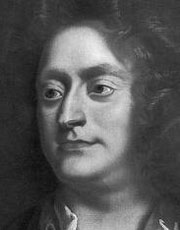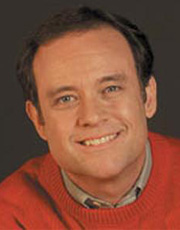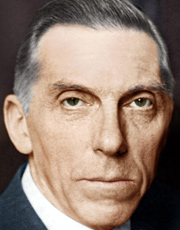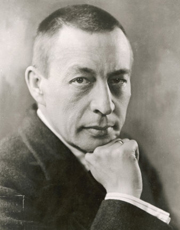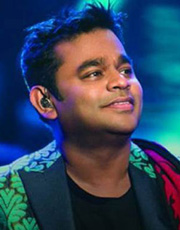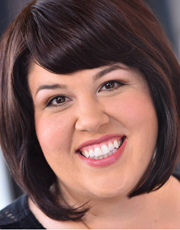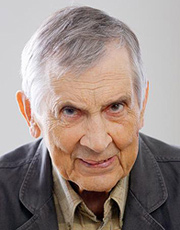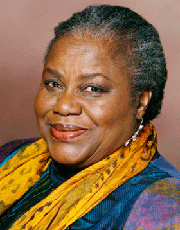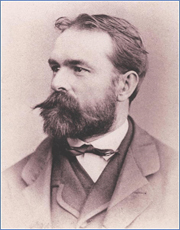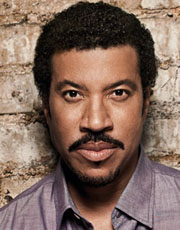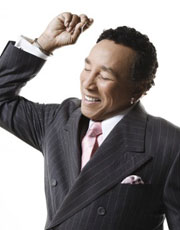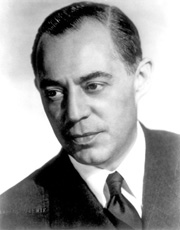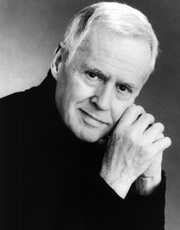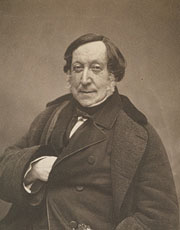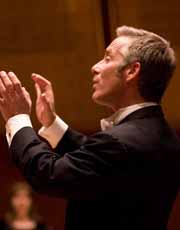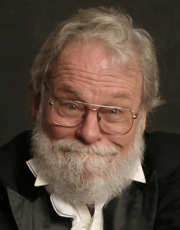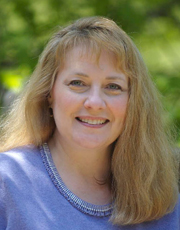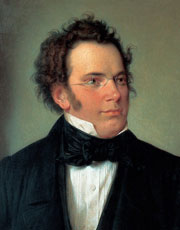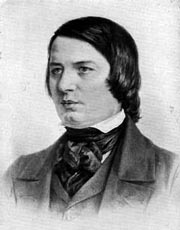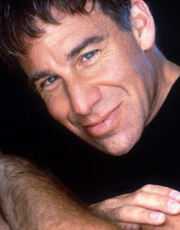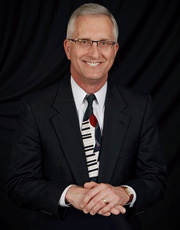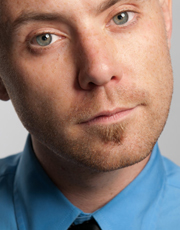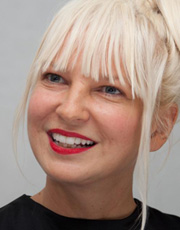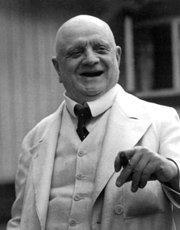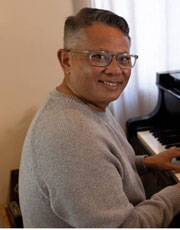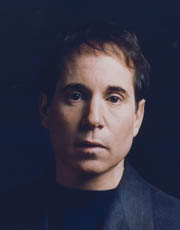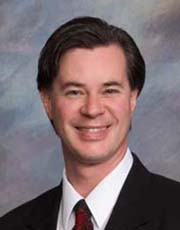In Celebration of the Human Voice - The Essential Musical Instrument
Home | Doo Wop | Barbershop | World | Contemporary | Christian | Vocal Jazz | Choral | Christmas | Instructional | Arrangements
Classical | Opera | Musicals | Personality | Young Singers | Disney | Videos | Songs | The Artists

Choral Composers
So much of what many of us would think of as choral music is traditional, centuries-old works, things our parent and grandparents grew up with, but that’s really not the be-all and end-all of choral works. There are many talented, genius composers of the last century and a bit, who have created some beautiful, stellar works that are being sung by choirs around the world today. Why not check out some of these brilliant men and women’s work? If you’ve never tried modern choral work, you’re in for a lovely surprise. Why not treat yourself to that surprise today?
![]() Composers - Early Music | Classical | 20th Century | Modern
Composers - Early Music | Classical | 20th Century | Modern
Displaying 201 - 250 of 309 items.
Johannes Ockeghem
Although often thought to be Flemish, Ockeghem was born in Saint-Ghislain, in the provence of Hainaut (now part of modern Belgium), part of the Duchy of Burgundy. Like many composers in this period, he started his musical career as chorister: in his case, in the Notre Dame in Antwerp. Around 1452 he moved to Paris where he served as maestro di cappella to the French court, as well as becoming treasurer of the St. Martin cathedral in Tours.
Very few of his works have survived: some 14 masses, 10 motets, some 25 chansons, and a single requiem. This Missa pro Defunctis is the earliest surviving example of a polyphonic requiem mass.
A strong influence on Josquin Des Prez, Ockeghem was famous throughout Europe for his expressive music and his technical mastery. His technical prowess is demonstrated most clearly in the astonishing Missa Prolationem, composed entirely in canonical style, and his no less astonishing 36(!) part canon Deo Gratias. - but even these technique-oriented masterpieces demonstrate his insightful use of vocal ranges and unique expressive tonal language. Being a renowned bass singer himself, certainly his use of complex bass lines sets him apart from the other composers in the Dutch Schools.
To commemorate his death, Josquin Des Prez composed Nymphes des Bois on a poem by Molinet.
Nick Page
Nick Page is a Boston based composer, conductor and author who is best known for his song leading. In the 1980's he was a conductor with the Emmy Award winning Chicago Children's Choir. Since 1990, he has led Boston's Mystic Chorale and guest conducted around the word including at three of the four Carnegie Halls (Pittsburgh, New York, and Scotland). His choral works have premiered everywhere from Lincoln Center to humble school cafitoriums. He is the author of three books and has close to one hundred published choral pieces.
Giovanni Pierluigi Palestrina
He was nicknamed Il Prenestino. He had a tremendous influence on the development of Roman Catholic church music.
He went to Rome at the age of fourteen to sixteen and is supposed to have studied under Claude Goudimel. In 1544-51 he was organist of the principal church of his native city (St. Agapito, Palestrina), and in the latter year became maestro di cappella at Cappella Giulia in Rome. By his first compositions -- three masses dedicated to Pope Julius III (previously the Bishop of Palestrina) -- he made so favorable an impression that he was appointed musical director of the Julian chapel. He held similar positions at various chapels and churches in Rome until his death (notably St. John Lateran (1555-60) and St. Maria Maggiore (1561-6)); and by his compositions, which are very numerous -- masses, motets, hymns, and others, of which only one-half have been published -- he produced a complete revolution in the history of church music, altering the existing chants in line with the recommendations of the Council of Trent. The Missa Papae Marcelli is generally counted among his greatest masterpieces.
Jim Papoulis
Papoulis has made significant contributions to choral music by revitalizing the choral repertoire with songs whose roots are classical and world, with voicing that incorporates lead vocalists with choirs, vocal percussion, and world rhythms.
His choral work often is sung from the perspective of the singer, and is constantly inspired by the work he does through the foundation for small voices. He firmly believes that music can heal, educate, celebrate, and empower the lives of children.
Through the Foundation for Small Voices he has conducted songwriting workshops with choirs from the United States, China, Japan, Tanzania, Mexico, Kenya, Newfoundland, Trinidad, Dominican Republic, Haiti, England, Norway, Canada, Spain, Italy, Kenya, Uganda, Turkey, Brazil, France, Ireland, Bosnia, Jordan, Australia, Holland, Dubai, and Greece.
He has worked with choirs and ensembles on all continents and from all walks of life.
Owain Park
Owain Park was born in Bristol in 1993. His compositions are published by Novello, and have been performed internationally by ensembles including the Tallis Scholars and the Aurora Orchestra. While at Cambridge University he studied orchestration with John Rutter, before undertaking a Masters degree in composition.
As a conductor, he maintains a busy schedule of projects with ensembles including the BBC Singers, the Academy of Ancient Music, Cappella Cracoviensis, and Cambridge Chorale. His own vocal consort, The Gesualdo Six, tour extensively around the world and have been lauded for their interpretation of renaissance and contemporary music.
Owain is a Fellow of the Royal College of Organists (FRCO), and was awarded the Dixon Prize for improvisation, having been Senior Organ Scholar at Wells Cathedral and Trinity College Cambridge.
He was a Tenebrae Associate Artist for two seasons, and has worked with ensembles including The Sixteen, Gabrieli Consort, and Polyphony.
Arvo Part
The composer Arvo Part (pronounced "pairt") was born in Estonia in 1935. Although at that time Estonia was a nascent independent republic, the Soviet Union took control of it in 1940, and stayed except for a brief period under the Nazis, for the next 54 years.
Arvo PartPart's musical education began at age 7, and by 14 or 15 he was writing his own compositions. While studying composition at the Tallinn Conservatory it was said of him that: "he just seemed to shake his sleeves and notes would fall out". There were very few influences from outside the Soviet Union at this time, just a few illegal tapes and scores.
Part's oeuvre is generally divided into two periods, and he is best known for his more recent works. The early works range from rather severe neo-classical styles influences by Shostakovich, Prokofiev and Bartok. He then began to compose using Schoenberg's twelve-tone technique and serialism, but this not only earned the ire of the Soviet establishment, but also proved to be a creative dead end.
Dolly Parton
Dolly Rebecca Parton is an American singer-songwriter, actress, author, businesswoman, and humanitarian, known primarily for her work in country music.
Parton is the most honored female country performer of all time. Achieving 25 RIAA certified gold, platinum, and multi-platinum awards, she has had 25 songs reach No. 1 on the Billboard Country charts, a record for a female artist. She has 41 career top 10 country albums, a record for any artist, and she has 110 career charted singles over the past 40 years. All-inclusive sales of singles, albums, hits collections, and digital downloads during her career have topped 100 million worldwide. She has garnered eight Grammy Awards, two Academy Award nominations, ten Country Music Association Awards, seven Academy of Country Music Awards, three American Music Awards, and is one of only seven female artists to win the Country Music Association's Entertainer of the Year Award. Parton has received 46 Grammy nominations, tying her with Bruce Springsteen for the most Grammy nominations and placing her in tenth place overall.
Stephen Paulus
Composer Stephen Paulus has been hailed as "...a bright, fluent inventor with a ready lyric gift." (The New Yorker) His prolific output of more than two hundred works is represented in many genres, including music for orchestra, chorus, chamber ensembles, solo voice, keyboard and opera. Commissions have been received from the New York Philharmonic, Cleveland Orchestra, Atlanta Symphony Orchestra, Minnesota Orchestra, Dallas Symphony Orchestra, The Houston Symphony and St. Paul Chamber Orchestra, with subsequent performances coming from the orchestras of Los Angeles, Philadelphia, St. Louis, the National Symphony Orchestra, and the BBC Radio Orchestra. He has served as Composer in Residence for the orchestras of Atlanta, Minnesota, Tucson and Annapolis, and his works have been championed by such eminent conductors as Sir Neville Marriner, Kurt Masur, Christoph von Dohanyi, Leonard Slatkin, Yoel Levi, the late Robert Shaw, and numerous others.
Krzysztof Penderecki
One of the best known, most listened to, and most popular composers of the late twentieth and early twenty-first centuries, Krzysztof Penderecki has undergone a marked evolution in compositional style. After achieving fame with such astringent, often anguished, scores as his Threnody for the Victims of Hiroshima (1960) and Passion According to St. Luke (1965), both of which stretched tonal language, Penderecki followed a personal imperative in moving toward more tonal music. As early as 1980, his Symphony No. 2 embraced pre-serialist notions of melody and harmony. This fertile exploration of traditional language has continued to yield rewarding works into the new millennium. Penderecki was given violin and piano lessons as a child. He studied art and literary history and philosophy at the local university while also attending the Krakow Conservatory. He privately studied composition before he entered the Krakow State Academy of Music in 1954.
Giovanni Pergolesi
Giovanni Battista Draghi often referred to as Giovanni Battista Pergolesi, was an Italian Baroque composer, violinist, and organist. His best-known works include his Stabat Mater and the opera La serva padrona (The Maid Turned Mistress). His compositions include operas and sacred music. He died of tuberculosis at the age of 26.
Pergolesi was one of the most important early composers of opera buffa (comic opera). His opera seria, Il prigionier superbo, contained the two-act buffa intermezzo, La serva padrona (The Servant Mistress, 28 August 1733), which became a very popular work in its own right. When it was performed in Paris in 1752, it prompted the so-called Querelle des Bouffons ("quarrel of the comic actors") between supporters of serious French opera by the likes of Jean-Baptiste Lully and Jean-Philippe Rameau and supporters of new Italian comic opera. Pergolesi was held up as a model of the Italian style during this quarrel, which divided Paris's musical community for two years.
Cole Porter
The only child of Samuel Fenwick, a druggist, and Kate Cole, Cole Porter, born in Peru, Indiana on June 9th, 1891, was given a lot of attention. His parents offered him opportunities to study music, acting, or anything else he wanted, but he opted to study violin and piano. Starting at an early age, Porter had completed his first song, "Song of the Birds," by the age of ten. A few years later, his mother had his piece, "The Bobolink Waltz," published. A few years later, his parents decided to send him to a private boarding school called Worcester Academy, in Massachusettes, which was said to have a strong music department. He entered Yale a few years later. The large size of the university allowed him to find many musical opportunities, from writing two of Yale's best known football songs ("Bull Dog" and "Bingo Eh Yale") to accompanying vocal groups and musical productions. Porter graduated with a "Most Entertaining," award.
Francis Poulenc
The brilliant French composer, Francis (Jean Marcel) Poulenc, was born into a wealthy family of pharmaceutical manufacturers. His mother, an amateur pianist, taught him to play, and music formed a part of family life. At 16, he began taking formal piano lessons with Ricardo Vinees.
A decisive turn in his development as a composer occurred when Francis Poulenc attracted the attention of Erik Satie, the arbiter elegantiarum of the arts and social amenities in Paris. Deeply impressed by Satie's fruitful eccentricities in the then-shocking manner of Dadaism, Poulenc joined an ostentatiously self-descriptive musical group called the Nouveaux Jeunes. In a gratuitous parallel with the Russian Five, the French critic Henri Collet dubbed the "New Youths" Le Groupe de Six, and the label stuck under the designation Les Six. The 6 musicians included, besides Poulenc: Auric, Durey, Arthur Honegger, Milhaud, and Tailleferre. Although quite different in their styles of composition and artistic inclinations, they continued collective participation in various musical events. Les Six also had links with Erik Satie and Jean Cocteau.
Rosephanye Powell
Dr. Rosephanye Dunn Powell has been hailed as one of America's premier women composers of choral music. Dr. Powell is commissioned yearly to compose for university choruses, professional, community and church choirs, as well as secondary school choruses. Dr. Powell's works have been conducted and premiered by nationally-renowned choral conductors, including, but not limited to, Anton Armstrong, Philip Brunelle, Bob Chilcott, Rodney Eichenberger, Tom Hall, Albert McNeil, Tim Seelig, Andre Thomas and Judith Willoughby. Her work has been auctioned by Chorus America and her compositions are in great demand at choral festivals around the country, frequently appearing on the regional and national conventions of the American Choral Directors Association, as well as Honor Choir festivals.
Michael Praetorius
Michael Praetorius was the son of Michael Schultze (Praetorius being a Latinization of the name). At an early age Praetorius attended the University of Frankfurt a. O., his brother supporting him.
When his brother died, Praetorius became organist at Frankfurt and later held the same post at Luneburg. In this latter town Pratorius began his career as Kapellmeieter. In 1604 he entered the service of the Duke of Brunswick at Wolfenbuttel, first as organist, later as "kapellmeister" and secretary. He was appointed honorary prior of the Ringelheim Monastery near Goslar, but without compulsion to reside there.
Praetorius had become famous as composer of church music, among which should be mentioned the mammoth edition of over twelve hundred songs. He began to write a complete encyclopedia of the art and practice of music, of which he finished three volumes with the title Syntagma Musicum. The second volume of this work is the most elaborate and valuable of all treatises on instruments and instrumental music in the 16th century. It is considered one of the most remarkable examples of musical scholarship in existance. Among his other titles were Musae Sioniae published in nine parts and Hymnodia Sionae. He ranks high as a writer and also as a composer of church melodies.
Richard Proulx
Richard Proulx has more than 300 published works, including congregational music in every form, sacred and secular choral works, song cycles, two operas, and instrumental and organ music. He served on the core committee for such hymnals as The Hymnal 1982, New Yale Hymnal, the Methodist Hymnal, Worship-Second Edition and Worship-Third Edition. He also has contributions in the Mennonite Hymnal and the Presbyterian Hymnal. Proulx was a member of The Standing Commission on Church Music of the Episcopal Church and was a founding member of The Conference of Roman Catholic Cathedral Musicians. He conducted choral festivals and workshops across the country as well as in Canada, The Netherlands, Switzerland, Scotland, Australia, and New Zealand.
Giacomo Puccini
Giacomo Puccini was an Italian composer known primarily for his operas. Regarded as the greatest and most successful proponent of Italian opera after Verdi, he was descended from a long line of composers, stemming from the late-Baroque era. Though his early work was firmly rooted in traditional late-19th-century Romantic Italian opera he later developed his work in the realistic verismo style, of which he became one of the leading exponents.
His most renowned works are La boheme (1896), Tosca (1900), Madama Butterfly (1904), and Turandot (1924), all of which are among the most frequently performed and recorded of all operas.
Most broadly, Puccini wrote in the style of the late-Romantic period of classical music. Music historians also refer to Puccini as a component of the giovane scuola ("young school"), a cohort of composers who came onto the Italian operatic scene as Verdi's career came to an end, such as Mascagni, Leoncavallo, and others mentioned below. Puccini is also frequently referred to as a verismo composer
Henry Purcell
Born in 1659, Henry Purcell was the finest and most original composer of his day. Though he was to live a very short life (he died in 1695) he was able to enjoy and make full use of the renewed flowering of music after the Restoration of the Monarchy.
As the son of a musician at Court, a chorister at the Chapel Royal, and the holder of continuing royal appointments until his death, Purcell worked in Westminster for three different Kings over twenty-five years.
In the Chapel Royal young Purcell studied with Dr. John Blow. Dr. Burney, the eighteenth century historian, is amusingly skeptical on this point: "..... he had a few lessons from Dr. Blow, which were sufficient to cancel all the instructions he had received from other masters, and to occasion the boast inscribed on the tomb-stone of Blow, that he had been 'Master to the famous Mr. Henry Purcell'." Legend has it that when, in 1679, Purcell succeeded Dr. Blow as organist of Westminster Abbey, the elder musician stepped aside in recognition of the greater genius, and it is true that on Purcell's death in 1695 Blow returned to the post, and would write a noble Ode on the Death of Purcell.
John Purifoy
John Purifoy is an ASCAP composer and arranger with various published choral anthems, cantatas and keyboard collections and works recorded by Carol Lawrence, Anita Kerr, the Chicago Master Chorale and other artists. His work for chorus and orchestra, We Hold These Truths, narrated by Alex Haley won the 1987 Freedoms Foundation Award for musical programs. He is the composer and lyricist of the stage musical, Lambarene, which received a workshop production at the state theatre of New Jersey in 1991. John lives in Knoxville, Tennessee with his wife Vicki, a television news producer, and two teenage sons, Drew and Michael.
Sarah Quartel
Sarah Quartel is a Canadian composer and educator known for her fresh and exciting approach to choral music. She celebrates the musical potential of all learners by providing singers access to high quality repertoire and engaging music education. Sarah's choral works are performed by children, youth, and adults throughout the world and her work as an educator connects exciting musical experiences with meaningful classroom learning.
Roger Quilter
Roger Cuthbert Quilter was a British composer, known particularly for his art songs. His songs, which number over a hundred, often set music to text by William Shakespeare and are a mainstay of the English art song tradition.
Roger Quilter's output of songs, more than one hundred in total, added to the canon of English art song that is still sung today. According to Valerie Langfield, his style "was indisputably English" despite his German training, and once matured around 1905, did not develop further. Shakespeare, Herrick, and Shelley were his favoured poets.(4) Among the most popular are "Love's Philosophy", "Fair House of Joy", "Come Away Death", "Go, Lovely Rose", "Weep You No More", "By the Sea", and his setting of "O Mistress Mine". Quilter's setting of verses from the Tennyson poem "Now Sleeps the Crimson Petal" is one of his earliest songs but is nonetheless characteristic of the later, mature style.
Sergei Rachmaninoff
Sergei Rachmaninov (also spelled Rachmaninoff) was a legendary Russian composer and pianist who emigrated after the Communist revolution of 1917, and became one of the highest paid concert stars of his time, and one of the most influential pianists of the 20th century.
He was born Sergei Vasilevich Rachmaninov on April 2, 1873, on a large estate near Novgorod, Russia. He was the fourth of six children born to a noble family, and lived in a family estate, where he enjoyed a happy childhood. He studied music with his mother from age 4; continued at the St. Petersburg Conservatory, and then graduated from the Moscow Conservatory in 1892, winning the Great Gold Medal for his new opera "Aleko."
He was highly praised by Pyotr Ilyich Tchaikovsky , who promoted Rachmaninov's opera to the Bolshoi Theater in 1893. But the disastrous premiere of his 1st Symphony, poorly conducted by A. Glazunov, coupled with his distress over the Russian Orthodox Church's pressure against his marriage, caused him to suffer from depression, which interrupted his career for three years until he sought medical help in 1900. He had a three-month treatment by a hypnotherapist, aimed at overcoming his writer's block. Upon his recovery, Rachmaninov composed his brilliant 2nd Piano Concerto, and made a comeback with successful concert performances. From 1904-1906 he was a conductor at the Bolshoi Theater in Moscow.
A.R. Rahman
Allahrakka Rahman; known professionally as A. R. Rahman, is an Indian music director, composer, musician, singer and music producer. A. R. Rahman's works are noted for integrating Indian classical music with electronic music, world music and traditional orchestral arrangements. Among his awards are six National Film Awards, two Academy Awards, two Grammy Awards, a BAFTA Award, a Golden Globe Award, fifteen Filmfare Awards and seventeen Filmfare Awards South. He has been awarded the Padma Bhushan, the third highest civilian award, in 2010 by the Government of India. In 2009, Rahman was included on the Time 100 list of the world's most influential people. The UK-based world-music magazine Songlines named him one of "Tomorrow's World Music Icons" in August 2011. South Indian fans of Rahman refer him with the nickname of "The Mozart of Madras", and "Isai Puyal" (English: the Musical Storm).
Imant Raminsh
Born in 1943 in Ventspils, Latvia, Imant Raminsh came to Canada in 1948. After completing an ARCT diploma in violin at the Royal Conservatory of Toronto and a Bachelor of Music programme at the University of Toronto, he spent two years at the Akademie "Mozarteum" in Salzburg, Austria, studying composition, fugue, violin and conducting, and playing in the professional Camerata Academica orchestra. His music has been heard on 6 continents, and performed in such renowned halls as Carnegie Hall and Notre Dame.
Andrea Ramsey
Dr. Andrea Ramsey enjoys an international presence as a composer, conductor, scholar and music educator. Before leaping into full time composing and guest conducting, Andrea held positions at The Ohio State University and the University of Colorado Boulder, respectively. An award-winning composer with approximately 100 works to date, she believes strongly in the creation of new music. A native of Arkansas, Andrea has experienced in her own life the power of music to provide a sense of community, better understanding of our humanity and rich opportunities for self-discovery.
Einojuhani Rautavaara
Einojuhani Rautavaara is internationally one of the best known and most frequently performed Finnish composers. He is by nature a romantic, even a mystic, as is often apparent from the titles of his works: for example Angels and Visitations for orchestra or his double-bass concerto Angel of Dusk. Despite Rautavaara's label of "mysticism" he is a complex and contradictory figure whose works cannot be categorized in stylistic terms.
Rautavaara's earliest works revealed close ties to tradition but also his desire to renew it. They were followed by an extreme constructivist and avant-garde phase (as in the serially organized fourth symphony "Arabescata", 1962) after which Rautavaara turned to hyper-romanticism and finally mysticism. Since the early 1980s, Rautavaara has adopted a sort of post-modern musical language in which modern and traditional elements of varying degrees of constructivism or freedom are combined with one another.
Bernice Johnson Reagon
For more than a half-century Bernice Johnson Reagon was a major cultural voice for freedom and justice. An African American woman's voice, a child of Southwest Georgia, a voice raised in song, born in the struggle against racism in America during the Civil Rights Movement of the 50s and 60s, she is a composer, songleader, scholar and producer.
Perhaps no individual today better illustrates the transformative power and instruction of traditional African American music and cultural history than Bernice Johnson Reagon, who has excelled equally in the realms of scholarship, composition, teaching and performance.
A woman of significant accomplishment, she has served as Distinguished Professor of History at American University, curator emerita at the Smithsonian Institution's National Museum of American History and as the founder and long-time artistic director of Sweet Honey In The Rock, a world-renowned a cappella ensemble of African-American women. Success in any one of these fields would be noteworthy, but she has combined music, a commitment to social justice and academic excellence, and has earned esteem in all three.
Max Reger
The celebrated German composer Reger (Johann Baptist Joseph) Max(imilian) Reger, was the son of a school-teacher and amateur musician, who gave him instruction on the piano organ, and various string instruments. In 1874 the family moved to Weiden, where he studied organ and theory with Adalbert Lindner. He then attended the teacher-training college; after visiting the Bayreuth Festival in 1888, he decided on a career in music. He went to Sondershausen to study with Riemann in 1890, and continued as his pupil in Wiesbaden (1890-1893).
From 1890 to 1896, Max Reger was active as a teacher of piano, organ, and theory. Following military service, he returned to Weiden in 1898 and wrote a number of his finest works for organ. He went to Munich in 1901, first gaining general recognition as a pianist and later as a composer; was professor of counterpoint at the Konigliche Akademie der Tonkunst (1905-1906). Prominent compositions from this period included the Piano Quintet, op. 64 (1901-1902), the Violin Sonata, op. 72 (1903), the String Quartet op. 74 (1903-1904), the Variationen und Fuge uber ein Thema von J.S. Bach for Piano, op. 81 (1904), and the Sinfonietta, op. 90 (1904-1905). He went to Leipzig as music director of the University (1907-1908) and as professor of composition at the Conservatory (from 1907).
Josef Rheinberger
The composer, organist and teacher, Josef (Joseph) Gabriel Rheinberger, was unusully gifted as a child and acquired considerable fame when only 5 years old. He recived at about this time lessons in theory, pianoforte and organ from Sebastian Pohly, a retired schoolmaster at Schlanders (a special pedal-board being made for him. When 7 years old, he already served as organist in his parish church, and at the age of 8 composed a mass for three voices. After enjoying for a short time the instruction of Choir-master Schmutzer in Feldkirch, he attended the conservatory at Munich from 1851 to 1854, and finished his musical education with a course under Franz Lachner.
Sir Tim Rice
"Tim" Rice is an English lyricist and author. An Academy Award, Golden Globe Award, Tony Award and Grammy Award-winning lyricist, Rice is best known for his collaborations with Andrew Lloyd Webber, with whom he wrote Joseph and the Amazing Technicolor Dreamcoat, Jesus Christ Superstar and Evita, with Bjorn Ulvaeus and Benny Andersson of ABBA, with whom he wrote Chess, and for additional songs for the 2011 West End revival of The Wizard of Oz, and for his work for Walt Disney Studios with Alan Menken (Aladdin, Beauty and the Beast, King David), Elton John (The Lion King, Aida, The Road to El Dorado) and Ennio Morricone.
Rice was knighted by Elizabeth II for services to music. He has a star on the Hollywood Walk of Fame, is an inductee into the Songwriter's Hall of Fame, is a Disney Legend recipient, and is a fellow of the British Academy of Songwriters, Composers and Authors.
Lionel Richie
A founder member of the Commodores, Lionel Richie's debut solo album was a U.S. #3 hit in 1982, and "Truly," a ballad from that album, reached #1, winning him a Grammy. He performed one of his most popular hits, "All Night Long" (1983), at the closing ceremony of the 1984 Los Angeles Olympic Games and co-wrote the famine relief song "We Are the World" with Michael Jackson in 1993.
Singer and songwriter Lionel Richie born on June 20, 1949 in Tuskegee, Alabama, USA. His grandfather worked at the Tuskegee Institute with Booker T. Washington.
A founder member of the Commodores, his debut solo album Lionel Richie (1982) was a US number 3 hit, and 'Truly', a ballad from that album, reached US number 1, winning him a Grammy award. He performed one of his most popular hits, 'All Night Long' (1983), at the closing ceremony of the 1984 Los Angeles Olympic Games. Richie co-wrote the famine relief song 'We Are The World' with Michael Jackson in 1993. Later albums include Louder Than Words (1996), Renaissance (2000), and Coming Home (2006).
Smokey Robinson
Once pronounced by Bob Dylan as America's "greatest living poet," acclaimed singer-songwriter Smokey Robinson's career spans over 4 decades of hits. He has received numerous awards including the Grammy Living Legend Award, NARAS Lifetime Achievement Award, Honorary Doctorate (Howard University), Kennedy Center Honors and the National Medal of Arts Award from the President of the United States. He has also been inducted into the Rock 'n' Roll Hall of Fame and the Songwriters' Hall of Fame.
During the course of his 50-year career in music, Robinson has accumulated more than 4,000 songs to his credit and continues to thrill sold-out audiences around the world with his high tenor voice, impeccable timing, and profound sense of lyric. Never resting on his laurels, Smokey Robinson remains a beloved icon in our musical heritage.
Richard Rodgers
Richard Rogers was one of the most successful and celebrated composers of the 20th century. His partnerships with lyricists Lorenz Hart (1895-1943) and Oscar Hammerstein II (1895-1960) resulted in dozens of hit musicals for the stage and screen, from Babes in Arms to The Sound of Music. A published songwriter by the age of 17, Rodgers and Hart began collaborating in the 1920s. Between 1920 and 1943 they wrote dozens of musicals for the New York stage and Hollywood movies, including The Boys of Syracuse and Pal Joey. In 1943 Rodgers teamed with Oscar Hammerstein II to write Oklahoma!, a box office smash and a landmark in the history of musical theater. Rodgers and Hammerstein went on to write and produce hit musicals such as Carousel, State Fair, The King and I and The Sound of Music, all of which were adapted for the movies. After Hammerstein's death in 1960, Rodgers continued composing, sometimes writing his own lyrics. Rodgers was known for his catchy melodies and ability to incorporate other musical styles into popular tunes. Some of his songs, such as "My Funny Valentine" and "The Lady is a Tramp" have become jazz standards.
Ned Rorem
Words and music are inextricably linked for Ned Rorem. Time Magazine has called him "the world's best composer of art songs," yet his musical and literary ventures extend far beyond this specialized field. Rorem has composed three symphonies, four piano concertos and an array of other orchestral works, music for numerous combinations of chamber forces, ten operas, choral works of every description, ballets and other music for the theater, and literally hundreds of songs and cycles. He is the author of sixteen books, including five volumes of diaries and collections of lectures and criticism.
Gioachino Rossini
Gioachino Antonio Rossini was an Italian composer who wrote 39 operas as well as sacred music, chamber music, songs, and some instrumental and piano pieces. His best-known operas include the Italian comedies Il barbiere di Siviglia (The Barber of Seville) and La cenerentola and the French-language epics Moise et Pharaon and Guillaume Tell (William Tell). A tendency for inspired, song-like melodies is evident throughout his scores, which led to the nickname "The Italian Mozart." Until his retirement in 1829, Rossini had been the most popular opera composer in history.
John Rutter
John Rutter's compositional career has embraced both large and small-scale choral works, orchestral and instrumental pieces, a piano concerto, two children's operas, music for television, and specialist writing for such groups as the Philip Jones Brass Ensemble and the King's Singers. His most recent larger choral works, Requiem (1985), Magnificat (1990) and Psalmfest (1993) have been performed many times in Britain, North America, and a growing number of other countries. He co-edited four volumes in the Carols for Choirs series with Sir David Willcocks, and, more recently, has edited the first two volumes in the new Oxford Choral Classics series, Opera Choruses (1995) and European Sacred Music (1996).
Steven Sametz
Steven Sametz has earned increasing renown in recent years as both composer and conductor. He is the Ronald J. Ulrich Professor of Music and director of Lehigh University Choral Arts, one of the country's premiere choral programs. He also serves as Artistic Director for the elite a cappella ensemble, The Princeton Singers and is the founding director of The Lehigh University Choral Composer Forum, a summer course of study designed to mentor emerging choral composers.
Recent guest conducting appearances include the Taipei Philharmonic Foundation, the Berkshire Music Festival, the New York Chamber Symphony, and the Netherlands Radio Choir. Dr. Sametz' compositions have been heard throughout the world at the Tanglewood, Ravinia, Salzburg, Schleswig-Holstein, and Santa Fe music festivals. His in time of appears on the recent Grammy award-winning CD by Chanticleer, "Colors of Love," and his work may be heard on six other Chanticleer CDs
Peter Schickele
Peter Schickele wasa composer and pianist, perhaps best known for his satirical alter-ego P.D.Q. Bach. In the early seasons of Sesame Street, Schickele scored several live action films produced by Mark Sadan and Kirk Smallwood, including three riddle films and "Where the Garbage Goes."
A classically trained musician, Schickele attended Juilliard with Philip Glass. As P.D.Q. Bach, an obscure and questionably talented son of Johann Sebastian Bach, Schickele has created a complex history of continually unearthed "lost" recordings and compositions. Notable works include "Grand Serenade for an Awful Lot of Winds and Percussion," "Classical Rap, S. 96th St," "Toot Suite," "Canine Cantata," and the operas The Stoned Guest and Oedipus Tex. He introduced his P.D.Q. Bach concerts as "Professor" Peter Schickele of the University of Southern North Dakota at Hoople.
Ruth Elaine Schram
Ruth Elaine Schram wrote her first song at the age of twelve, and her first octavo was published twenty years later, in 1988. In 1992, she became a full-time composer and arranger and now has over 2,000 published works. Over seventeen million copies of her songs have been purchased in their various venues, and she has been a recipient of the ASCAP Special Award each year since 1990. In addition to her choral music for church and school choirs, her songs appear on thirty albums (four of which have been Dove Award Finalists) and numerous children's videos, including sixteen songs on four gold videos, and four songs on one multi-platinum video. Her songs have also appeared on such diverse television shows as "The 700 Club" and HBO's acclaimed series "The Sopranos."
Franz Schubert
Franz Peter Schubert was an Austrian composer of the late Classical and early Romantic eras. Despite his short lifetime, Schubert left behind a vast oeuvre, including more than 600 secular vocal works (mainly lieder), seven complete symphonies, sacred music, operas, incidental music, and a large body of piano and chamber music. His major works include "Erlkonig", the Piano Quintet in A major, the Symphony No. 8 in B minor, the "Great" Symphony No. 9 in C major, the String Quintet, the three last piano sonatas, the opera Fierrabras, the incidental music to the play Rosamunde, and the song cycles Die schone Mullerin and Winterreise.
Robert Schumann
Born in Zwickau, Germany in 1810, Robert Schumann started his musical education on the piano. The son of a bookseller, he began to experiment with composition at an early age, and also cultivated a passion for poetry and literature. Although richly talented, he was never considered a prodigy, especially by the standards of the time. At sixteen, after the tragic deaths of his sister and father, he entered the University of Leipzig to study the law; but this didn't last long, and soon he had left the school to pursue music with all his energies.
At the age of twenty, Schumann was studying the piano with Friedrich Wieck in Leipzig; he also boarded with the Wieck family. Although a hand injury prevented him from pursuing a career as a keyboard virtuoso, he found a niche writing music criticism - and composing, an activity, which was starting to focus his considerable talents. In the early 1830s, he published several piano pieces to critical acclaim. In 1834, he founded the New Journal for Music and served as its editor for the next nine years; the publication attacked what Schumann felt were the shallow and inconsequential musical practices of the day. On the positive side, he recognized the brilliance of Chopin and Brahms.
Stephen Schwartz
Stephen Lawrence Schwartz is an American musical theatre lyricist and composer. In a career spanning over four decades, Schwartz has written such hit musicals as Godspell (1971), Pippin (1972) and Wicked (2003). He has contributed lyrics for a number of successful films, including Pocahontas (1995), The Hunchback of Notre Dame (1996), The Prince of Egypt (1998; music and lyrics) and Enchanted (2007). Schwartz has won the Drama Desk Award for Outstanding Lyrics, three Grammy Awards, three Academy Awards and has been nominated for six Tony Awards. He received the 2015 Isabelle Stevenson Award, a special Tony Award, for his commitment to serving artists and fostering new talent.
David Schwoebel
David Schwoebel is a graduate of McKendree University in Lebanon, IL and Southwestern Baptist Theological Seminary in Fort Worth, TX where he received a Bachelor of Arts in Voice and Organ Performance, and Master of Church Music with an emphasis in Composition. After nearly 40 years of local church ministry, including 22+ years as Minister of Music/Composer in Residence at Derbyshire Baptist Church in Richmond, VA, David has transitioned to full-time work as a composer, arranger, pianist, accompanist, and clinician. Possessing such diverse education and practical ministry experience enables him to arrange and compose in multiple mediums including piano, organ, handbells, and instrumental, as well as choral music for all ages. As an established composer of sacred music with over 200 publications in 29 different publisher's catalogs, David is known specifically for giving musical life to lyrics through sensitive melodies, well-crafted choral writing, and rich-sounding accompaniments. A lover of hymnody, his MICHELLE hymn tune included in the 1991 Baptist Hymnal was named for his first, now deceased wife. The BRITTANY, ASHLEY, and COURTNEY hymn tunes, named for his three daughters, and ROSE MARY, HENDRICKS AVENUE, as well as an arrangement of IRBY , are included in the hymnal, Celebrating Grace. The hymn tunes, COURTNEY and ROSE MARY are also included in Glory to God: The Presbyterian Hymnal.
Marc Shaiman
Marc Shaiman, award-winning composer, lyricist, orchestrator and musician, has successfully created music for TV, film and theater since entering show business at the age of 16 in 1976. Marc has been Oscar nominated seven times (for "Mary Poppins Returns" (2), "Sleepless In Seattle", "Patch Adams", "The First Wives Club", The American President" and "South Park-Bigger, Longer & Uncut"). He has received two Tony Award nominations (winning one for co-writing the score to "Hairspray" with co-lyricist Scott Wittman), five Grammy Awards nominations (winning one for The Original Cast Recording of "Hairspray"), eleven Emmy Awards (winning one for his work on Billy Crystal's Academy Award hosting), four Golden Globe nominations (including "The Star", song co-written with Mariah Carey), and two BAFTA nominations ("Sleepless In Seattle" and "Mary Poppins Returns").
Joshua Shank
Joshua Shank's works have been widely performed by educational and professional ensembles alike. His music has been called "jubilant...ethereal" (Santa Barbara News-Press) and "evocative and atmospheric" (Gramophone). The Boston Classical Review called his Magnificat for the Mothers of the Plaza de Mayo "powerful" and "emotionally charged."
He has been commissioned by some of the most exciting choral ensembles in the United States as well as abroad and has collaborated with organizations such as Conspirare, the Young New Yorkers' Chorus, the Cincinnati Conservatory of Music, the American Choral Directors Association, The Esoterics, the Minnesota All-State Choir, and the Lorelei Ensemble (Boston). From 2004 to 2014 he served as Composer-In-Residence for the Minneapolis-based professional choir, The Singers: Minnesota Choral Artists, and alongside Artistic Director Matthew Culloton and fellow composers Abbie Betinis and Jocelyn Hagen, collaborated annually to expand and invigorate the repertoire for professional-caliber ensembles through innovative programming as well as new works written specifically for the ensemble.
Ed Sheeran
Edward Christopher Sheeran, MBE is an English singer-songwriter, guitarist, and record producer. He was born in Halifax, West Yorkshire, and raised in Framlingham, Suffolk. He attended the Academy of Contemporary Music in Guildford, Surrey, as an undergraduate from the age of 18 in 2009. In early 2011, Sheeran independently released the extended play, No. 5 Collaborations Project. After signing with Asylum Records, his debut album, + (read as "plus"), was released on 9 September 2011 and has since been certified seven-times platinum in the UK. The album contains the single "The A Team", which earned him the Ivor Novello Award for Best Song Musically and Lyrically. In 2012, Sheeran won the Brit Awards for Best British Male Solo Artist and British Breakthrough Act.
Sia Sia
Sia Kate Isobelle Furler is an Australian singer-songwriter,record producer and music video director. She started her career as a singer in the local Adelaide acid jazz band Crisp in the mid-1990s. In 1997, when Crisp disbanded, she released her debut studio album titled OnlySee in Australia. She then moved to London, England, and provided lead vocals for the British duo Zero 7.
In 2000, Sia signed to Sony Music's sub-label Dance Pool and released her second studio album, Healing Is Difficult, the following year. Displeased with the promotion of the record, she signed to Go! Beat and released her third studio album, Colour the Small One, in 2004. The project struggled to connect with a mainstream audience, and so Sia relocated to New York City in 2005 and began touring across the United States. She released her fourth and fifth studio releases, Some People Have Real Problems and We Are Born, in 2008 and 2010, respectively. She then took a hiatus from performing, during which she focused on songwriting for other artists. Her catalogue includes the successful collaborations "Titanium" (with David Guetta), "Diamonds" (with Rihanna) and "Wild Ones" (with Flo Rida).
Jean Sibelius
Considered the most distinguished Finnish composer, Jean Sibelius (1865-1957) was comfortably brought up in a musical environment by his mother and grandmother. He was born on December 8, 1865, in Hameenlinna, Finland, a son of an army doctor.
Sibelius showed a great ability in music early on, both as a violinist and composer. He had hopes of becoming a virtuoso violinist. He studied in Helsinki from 1886. Three years later, he went to Berlin to continue his composition studies, then after a year, to Vienna. He acquired a thorough knowledge of Viennese classics through playing in his family's string trio.
In 1892 he married Aino Jarnefelt and had five children.
Chris Silva
Chris de Silva composes, arranges and records with GIA Publications, Inc. He is originally from Singapore and currently lives in Los Angeles, California. Chris shares his joy for liturgical music at national conferences, diocesan and parish retreats.
Chris has ministered as music and liturgy director at several faith communities in the Archdiocese of Los Angeles and currently serves on the campus ministry team at Loyola Marymount University as Associate Director of Music.
He received a B.Mus. degree in Music Composition and Film Scoring from USC's Thornton School of Music and an M.A. in Pastoral Theology from Loyola Marymount University. Chris is currently pursuing a Doctor of Ministry degree at Candler School of Theology at Emory University.
Paul Simon
During his distinguished career Paul Simon has been the recipient of many honors and awards including 12 Grammy Awards, three of which ("Bridge Over Troubled Water", "Still Crazy After All These Years" and "Graceland") were albums of the year. In 2003 he was given a Grammy Lifetime Achievement Award for his work as half of the duo Simon and Garfunkel. He is a member of The Songwriters Hall of Fame, a recipient of their Johnny Mercer Award and is in the Rock n' Roll Hall of Fame as a member of Simon and Garfunkel and as a solo artist. His song "Mrs. Robinson" from the motion picture "The Graduate" was named in the top ten of The American Film Institute's 100 Years 100 Songs. He was a recipient of The Kennedy Center Honors in 2002 and was named as one of Time Magazine's "100 People Who Shape Our World" in 2006. In 2007, Mr. Simon was awarded the first annual Library of Congress Gershwin Prize for Popular Song. Named in honor of the legendary George and Ira Gershwin, this newly created award recognizes the profound and positive effect of popular music on the world's culture, and is given annually to a composer or performer whose lifetime contributions exemplify the standard of excellence associated with the Gershwin's.
Vijay Singh
Vijay Singh is an active performer, composer, teacher, conductor, and clinician residing in Ellensburg, Washington where he is Professor of Music at Central Washington University. A graduate of Willamette University (B. M. Ed/Clarinet & Voice) and Portland State University (Masters in Choral Conducting/Vocal Performance), he has been rapidly gaining international attention for his eclectic musical compositions, performances, workshops, and conducting appearances. Vijay's teaching experiences have included work at public secondary schools, community college, and university levels.
 |  |
Page 1 = Albrecht-Cherwien Page 2 = Chilcott-Gesualdo Page 3 = Gibb-Ligeti Page 4 = Lightfoot-O'Regan Page 5 = Ockeghem-Singh Page 6 = Sirett-Whitbourn Page 7 = Wilberg-Yi
Select a Category |
Want to Sing? - Find a Chorus Near You
List of Choruses by State | List of Choruses by City

